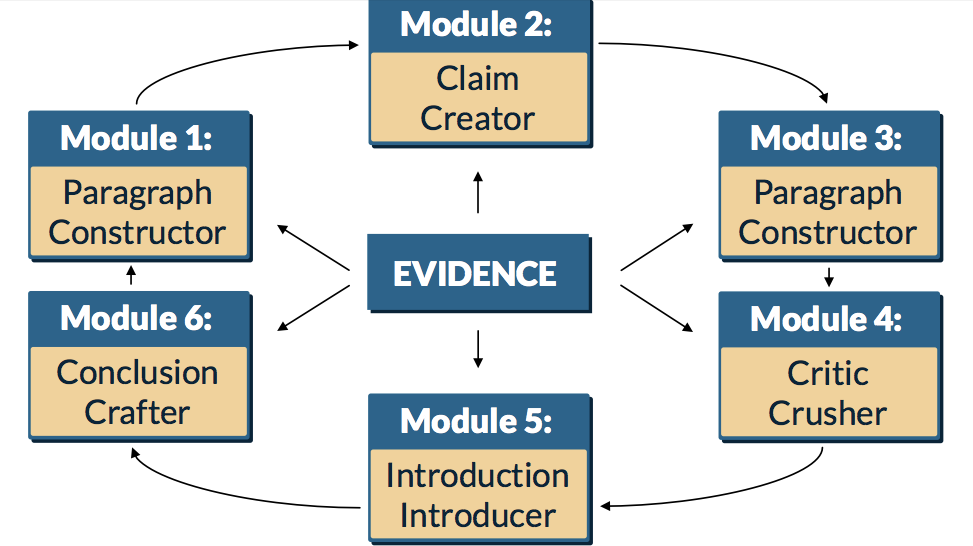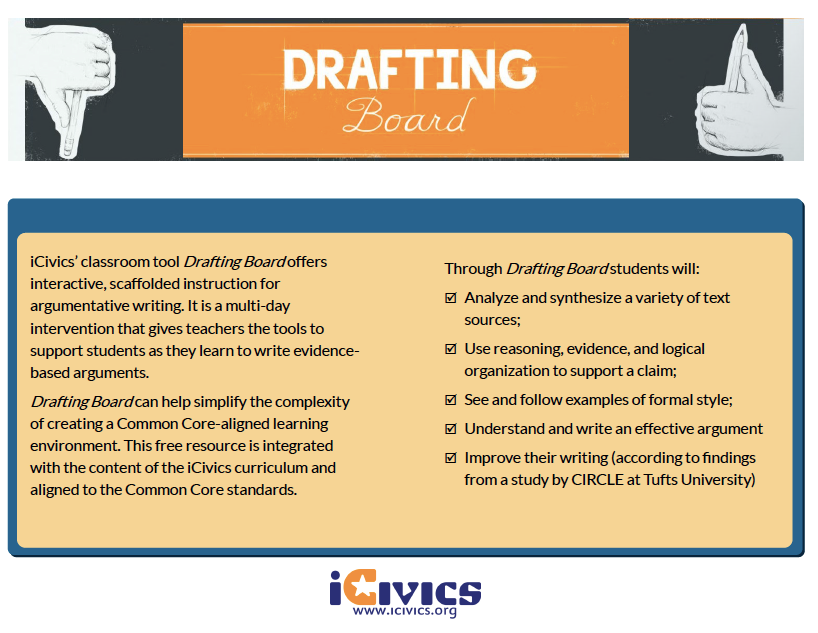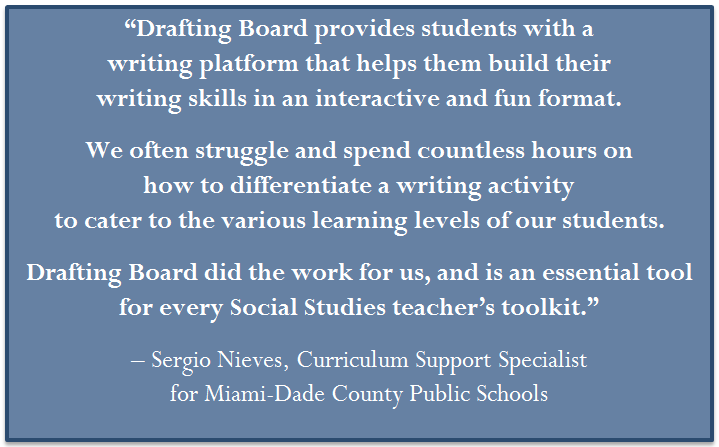Breakthrough Schools D.C. Round 3 Grantees
16 schools reimagining for more personalized and deeper learning ...
Educators often take advantage of educational technologies as they make the shifts in instruction, teacher roles, and learning experiences that next gen learning requires. Technology should not lead the design of learning, but when educators use it to personalize and enrich learning, it has the potential to accelerate mastery of critical content and skills by all students.
iCivics is an online civic education platform founded and led by Justice Sandra Day O'Connor. Drafting Board is a free, interactive, scaffolding instruction tool in iCivics that explores civics content more deeply, advances content-based literacy and critical thinking, and engages students in deeper learning. It gives students the tools they need to argue effectively about issues that matter to them—ultimately preparing them for college, career, and citizenship.
Drafting Board’s six modules guide students through the process of understanding an issue, taking a side, and using evidence to support a claim. At the end, students have an argumentative essay with an introduction, body, counterargument, and conclusion. Through this process, students learn to analyze and synthesize a variety of text sources; use reasoning, evidence, and logical organization to support a claim; and understand the structure of an effective argumentative essay.
Drafting Board’s Modules Teach Students to Argue Effectively on Issues
Common Core State Standards: Drafting Board covers ELA Literacy standards CCRA.W.1, CCRA.W.4-10; CCRA.R.1-4, CCRA.R.8, and the Writing to Read core strategies.
Each Drafting Board unit’s overview page has a feature for users to search for CCSS and individual State Standards by state:
The goal is for students to (1) meet Common Core Standards for Literacy in History/Social Studies; (2) obtain subject-specific knowledge of civics as defined by other state standards; and (3) show improvements in deeper learning competencies, specifically self-directed learning, communication skills, and problem solving and critical thinking.
Drafting Board has shown to improve student achievement at a greater rate than traditional instruction in a randomized controlled trial conducted across three diverse Florida districts in spring 2012 by Tufts University researchers:
Students who used Drafting Board for two or three days showed significant gains in argumentative writing ability in comparison with the control group.
The experimental group scored an average of 2.73 out of 4.00 in post-intervention argumentative essays, compared with 2.54 for the control group (p < 0.01) (Kawashima-Ginsberg, 2012).
Students in the intervention group were 62% more likely to write “excellent” essays than the control group.
NGLC funding fostered Drafting Board’s design, development, and iterative improvement. In addition, iCivics worked closely and learned alongside fellow grantees, including Gooru, LearnZillion, and Imagine Education.
Today: iCivics continues to support its educator community by supplying its users with world-class resources available on the latest technology platforms. To this end, priorities include improvement of Drafting Board’s interoperability and personalized learning features to make it even more accessible and effective for students.
Long term Goal: To prepare the next generation of engaged citizens


